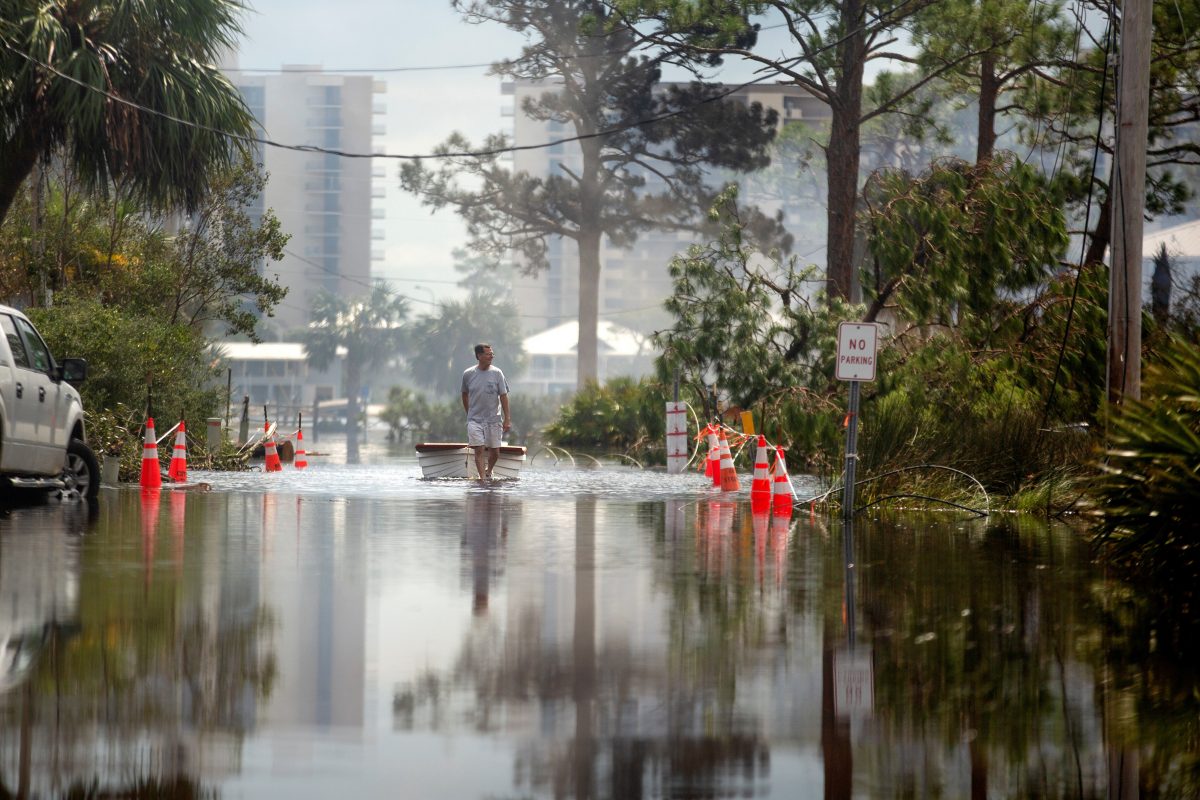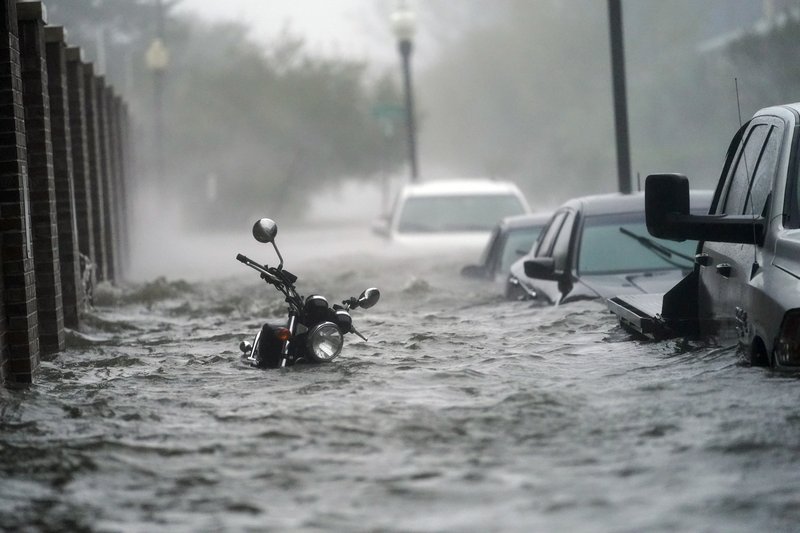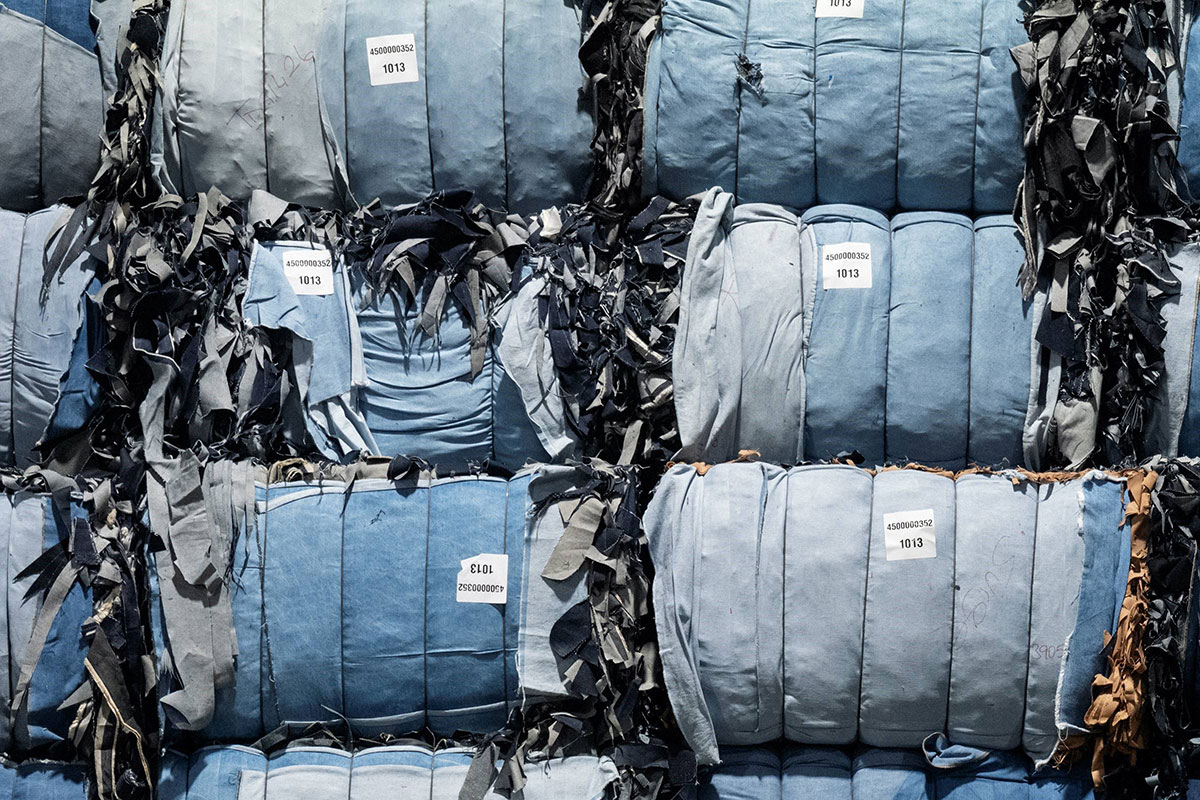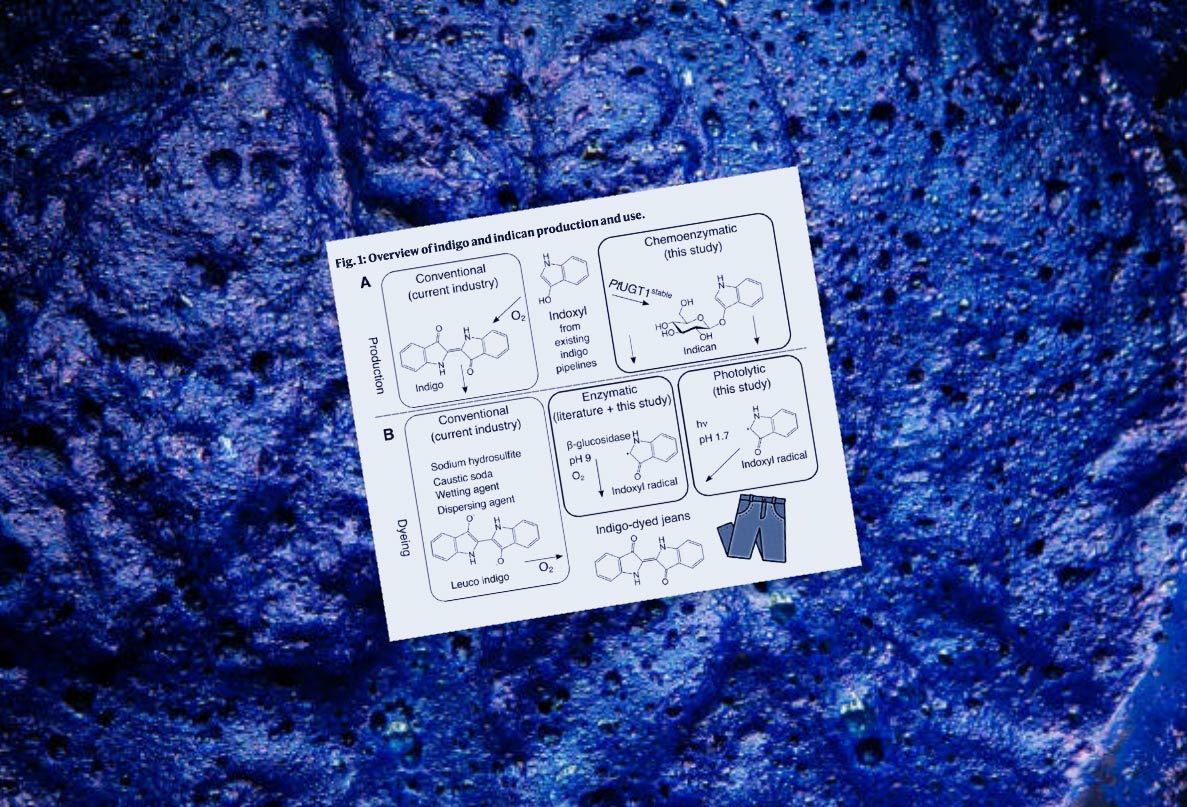TREND BITE: Environmental Activist / Conservationist Consumer
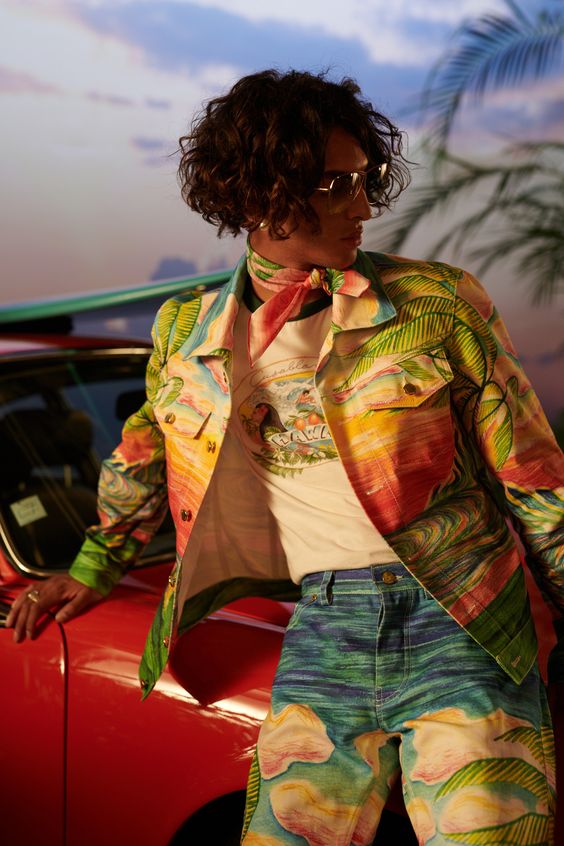
The 2008 market crash gave birth to a consumer shift increasingly focused towards humble design practices, built-to-last quality and locally crafted product. We have seen this shift continue to move even further into mainstream consciousness during these current turbulent times.
As the topic of sustainably and responsibly-made products have gained momentum in the last several years, the world and the natural disaster-prone US are experiencing the onset effects of drastic and obvious climate change, brought on by harmful human behaviour on our planet. Mass production apparel practices continue to be a contributor to climate change.
The West Coast of the US is engulfed in toxic smoke brought on by the worst wildfires in several states’ histories, the South is experiencing detrimental flooding, while the East Coast braces for a prolonged hurricane season. Environmentalists are demanding immediate action and have gained support from celebrities and politicians alike. Earlier this week California Governor, Gavin Newsom took to television screens all around the country stating the stark reality we are all experiencing
“This is a climate damn emergency, this is real, and it’s happening. Mother Nature is physics, biology and chemistry,” Newsom continued. “She bats last and she bats 1,000. That’s the reality. The debate is over around climate change. Just come to the state of California. Observe it with your own eyes.”
Our current global situation has emphasised the conservationist movement, impacting our production practices, our design and our consumer expectations. Designers are increasingly creating products with a purpose, aimed at protecting and raising awareness about the environment through fabrications such as recycled fibers, and nature-inspired prints like melting maps and earth contours.
Brands such as Casablanca and Reece Cooper debuted new SS21 collections featuring an emphasis on nature and environmental consciousness titled “Idealist” and “If a Tree Falls.” The rise of labels like Bode, Phipps, Story MFG and 18 East are a testament to the growing number of consumers who are looking for brands and products that reflect their values around respect for the environment – while at the same time looking contemporary and on-trend. Here, the focus is on responsible design, along with the movement towards slow craft, built around a wardrobe of timeless workwear and outdoors classics.
A bombshell dropped last week, however, when The Business of Fashion recently published research relating to the apparel industries impact on the environment and the information was contrary to previous reporting in a recent article titled, “Fashion’s Greenwashing Problem Begins with Bad Data.” Most of us have heard the infamous statistic that the fashion and textile industry is the second most polluting industry in the world next to big oil. That statistic along with many others has been debunked by the leading fashion platform, the New Standard Institute, leaving the fashion world in limbo, with vague claims and untraceable data. The lack of accurate data coupled with greenwashed marketing campaigns and loose definitions of sustainability are hindering even well-intentioned brands on choosing the right suppliers and production methods. Although some companies do collect data from their suppliers, it isn’t standardised to make comparisons, and in so many cases, what to measure and how, remains up for debate.
There are a growing number of independent initiatives and platforms working to educate and provide more accurate information to the industry and consumers alike.
“To make concrete demonstrable progress we … need to help clear up the mushiness that is sustainability,” said Maxine Bédat, founder and director of the New Standard Institute, a new program aimed at clearing up the subject. “It is still shocking to look up and see just how little is invested in the actual research before jumping to the conclusions that we should do X, Y and Z, or saying cotton is the best thing, or the worst thing.”
Innovative initiatives have been crucial in driving change within the industry and should be celebrated for bringing this much-needed conversation to the front and center of design and production related processes.
The Ethical Fashion Initiative aims to “act as a bridge, connecting marginalised artisan communities in challenging and remote locations with global lifestyle brands. Linking international brands with our network of artisans gives these communities in challenging and remote locations access to the international marketplace,” helping to close the gap between underpaid workers and mega brands. Fashion Revolution is another movement aimed at creating a fashion industry that ‘conserves and restores the environment and values people over growth and profit.’ These are just two of many initiatives bringing transparency to a very messy part of the global fashion supply chain, by making much needed information public and understandable to companies, brands and consumers alike.
Another emerging avenue for factual information in the conservationist movement comes from the purpose-driven influencer. Last year, the world fell in love with Gretta Thunberg, who proved the younger generation won’t stand for complacency and opened up the mainstream to other conservational handles such as Future Dust, Simply Suzette, and Leah Thomas from the Intersectional Environmentalist. Their platforms have been instrumental in driving D2C change in the industry whilst challenging and collaborating with brands to level-up their approach to sustainability.
With so many environmental platforms giving the consumer daily doses of easy-to-understand facts about our environment and a growing number of brands aiming to clean up their supply chain and production practices, the need for consistent and measurable data is crucial in order for the fashion industry to clean up its act.
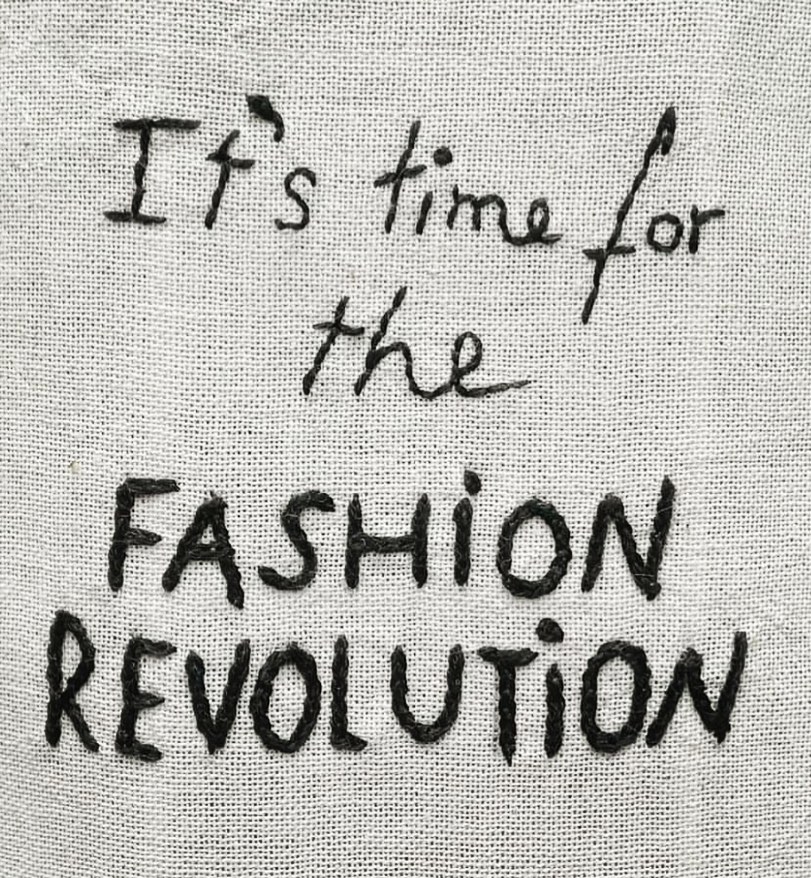
Fashion Revolution 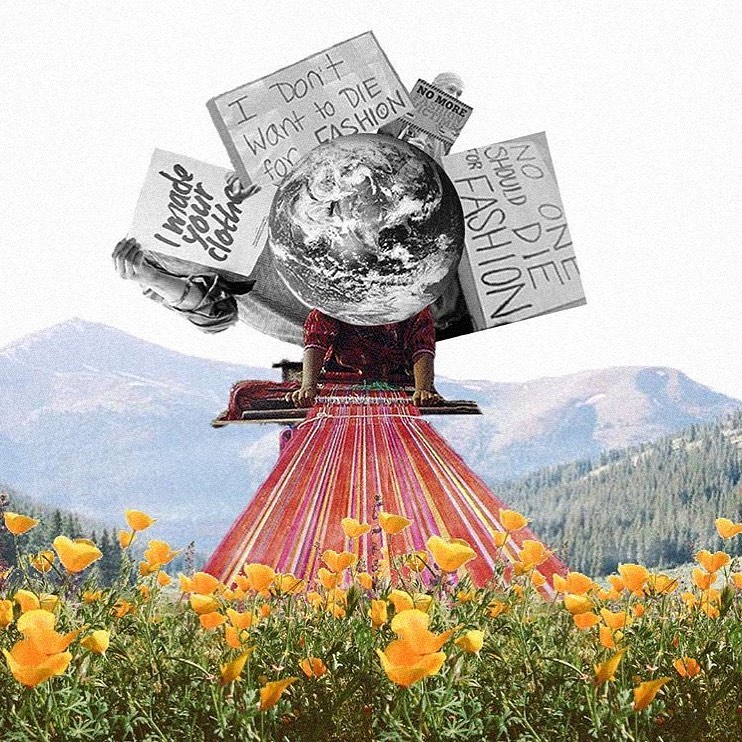
Fashion Revolution 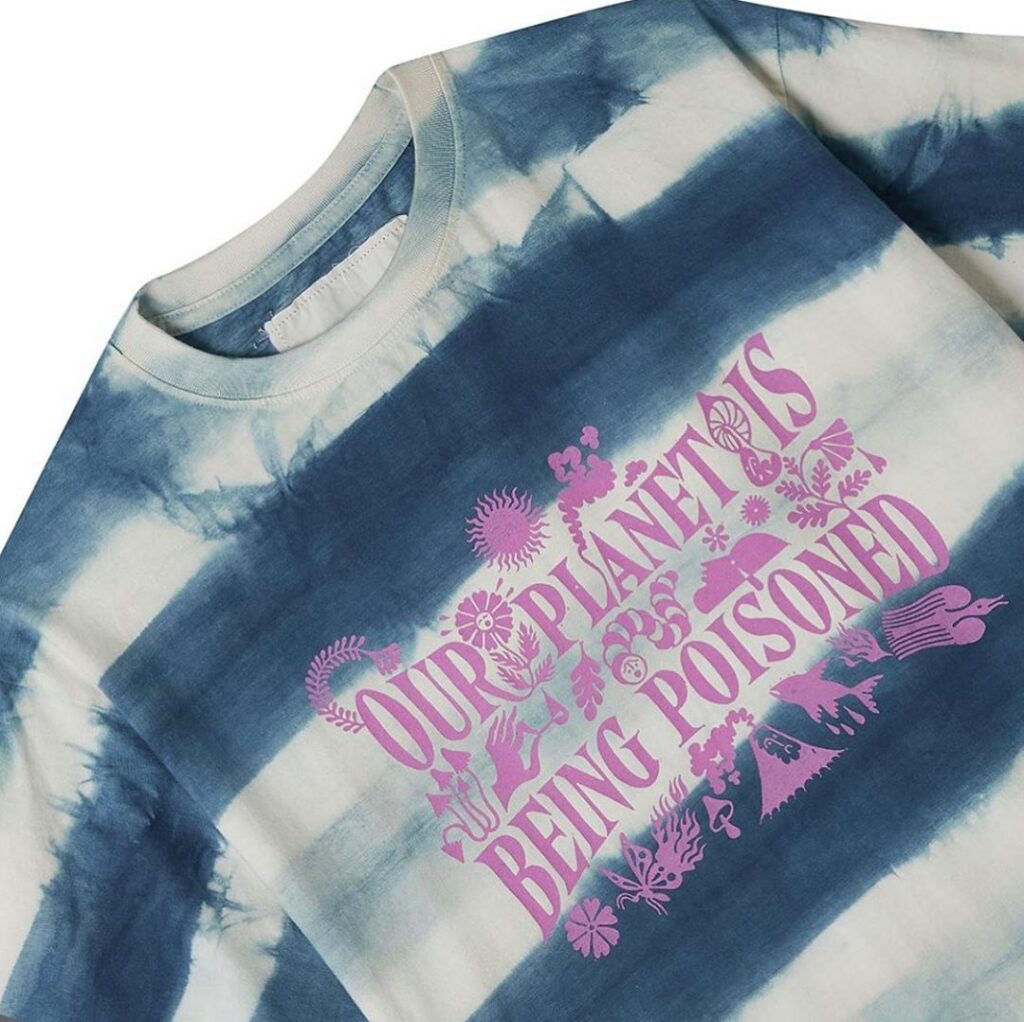
Story MFG 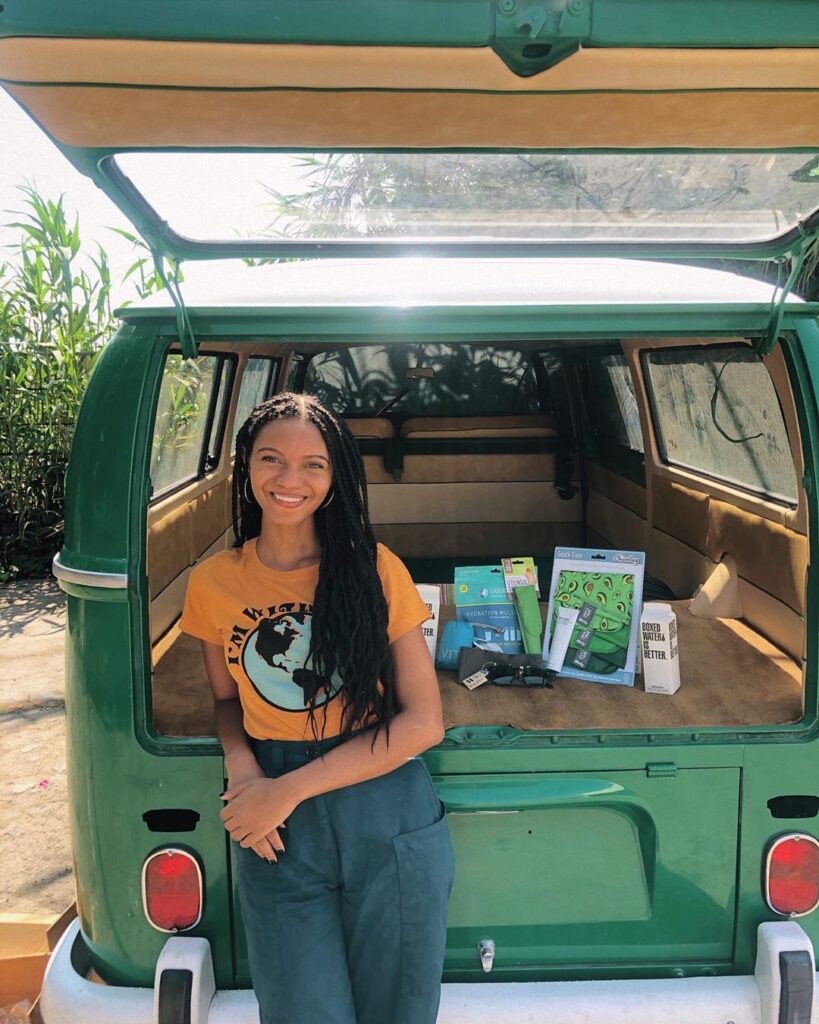
Green Girl Leah 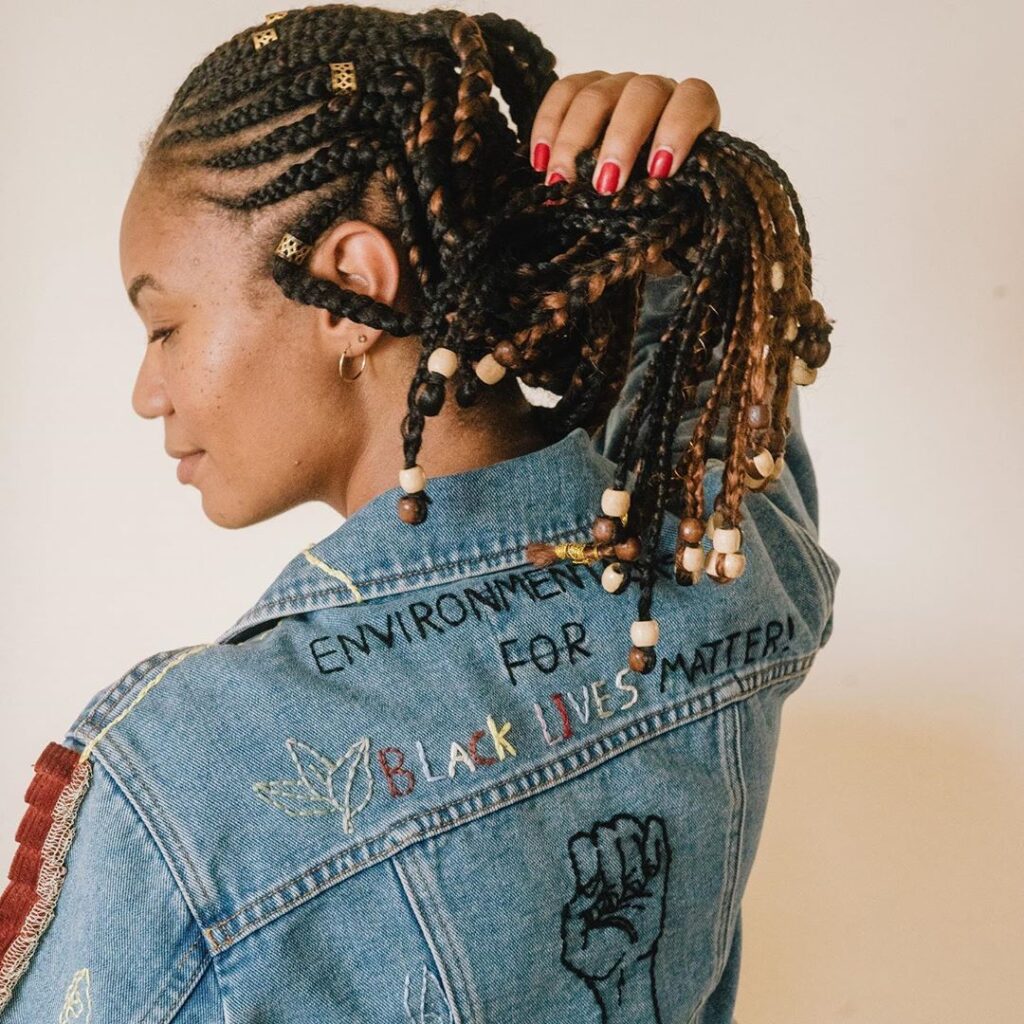
Green Girl Leah 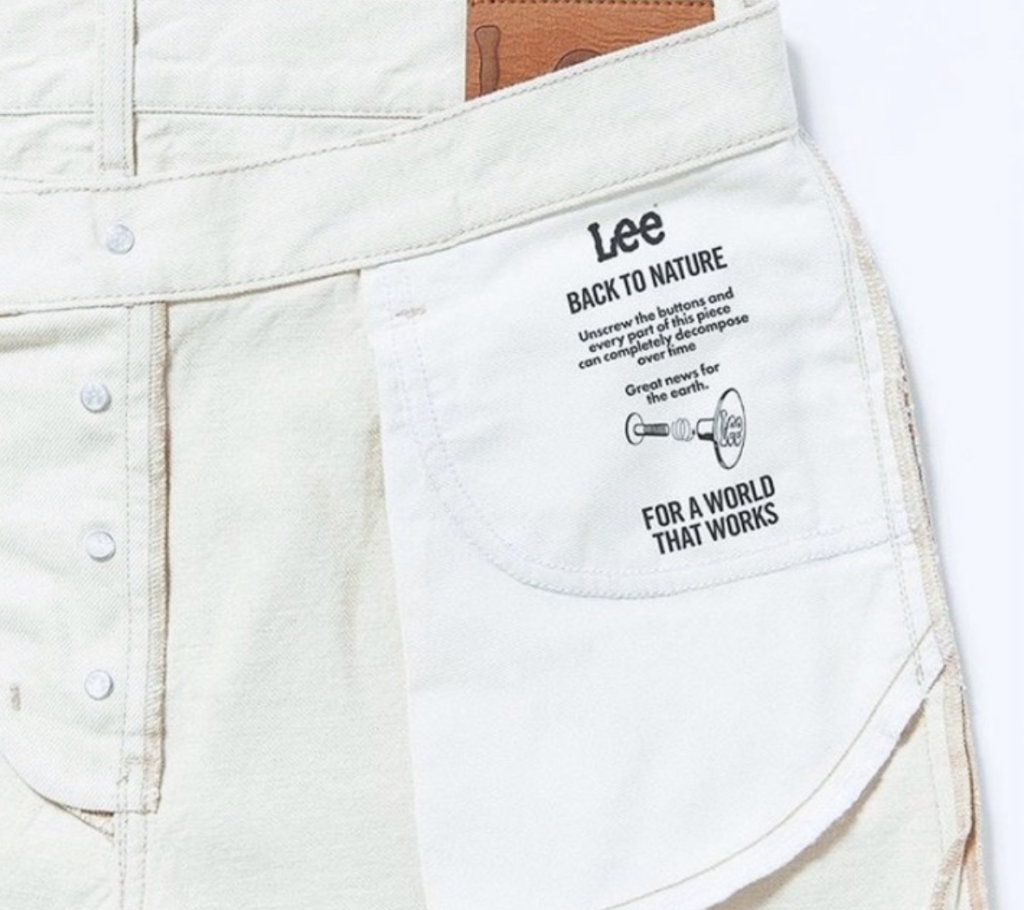
“Lee Jeans’ Back to Nature collection features unscrew-able buttons which helps in making a circular product,” said Simply Suzette. 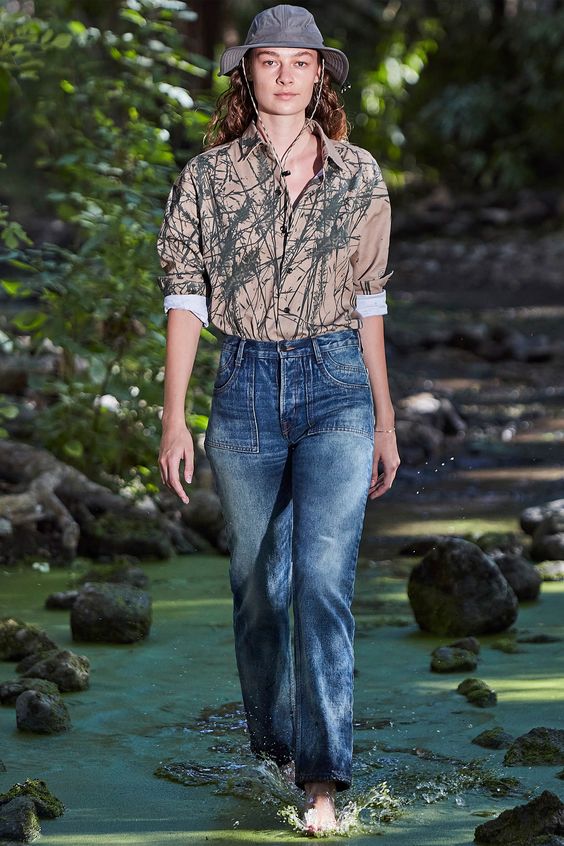
Reece Cooper SS21 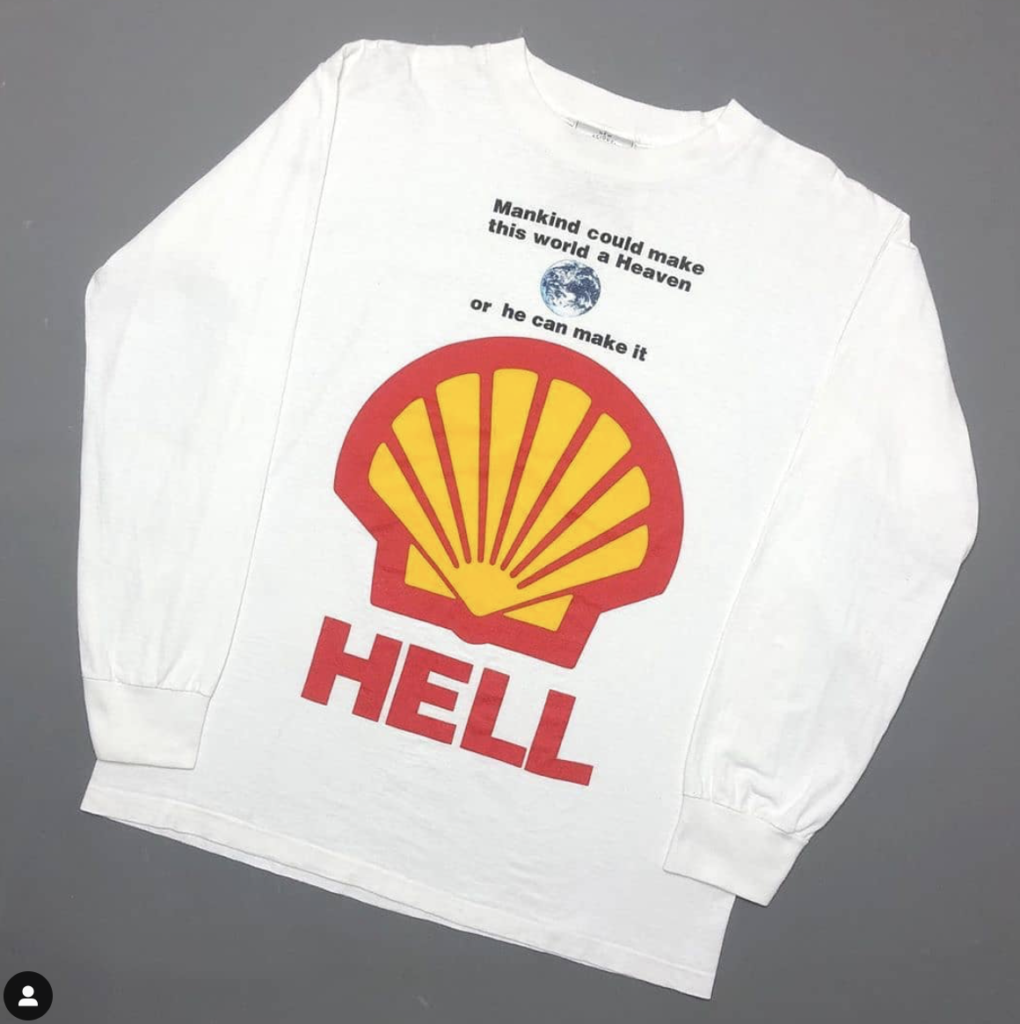
Future Dust 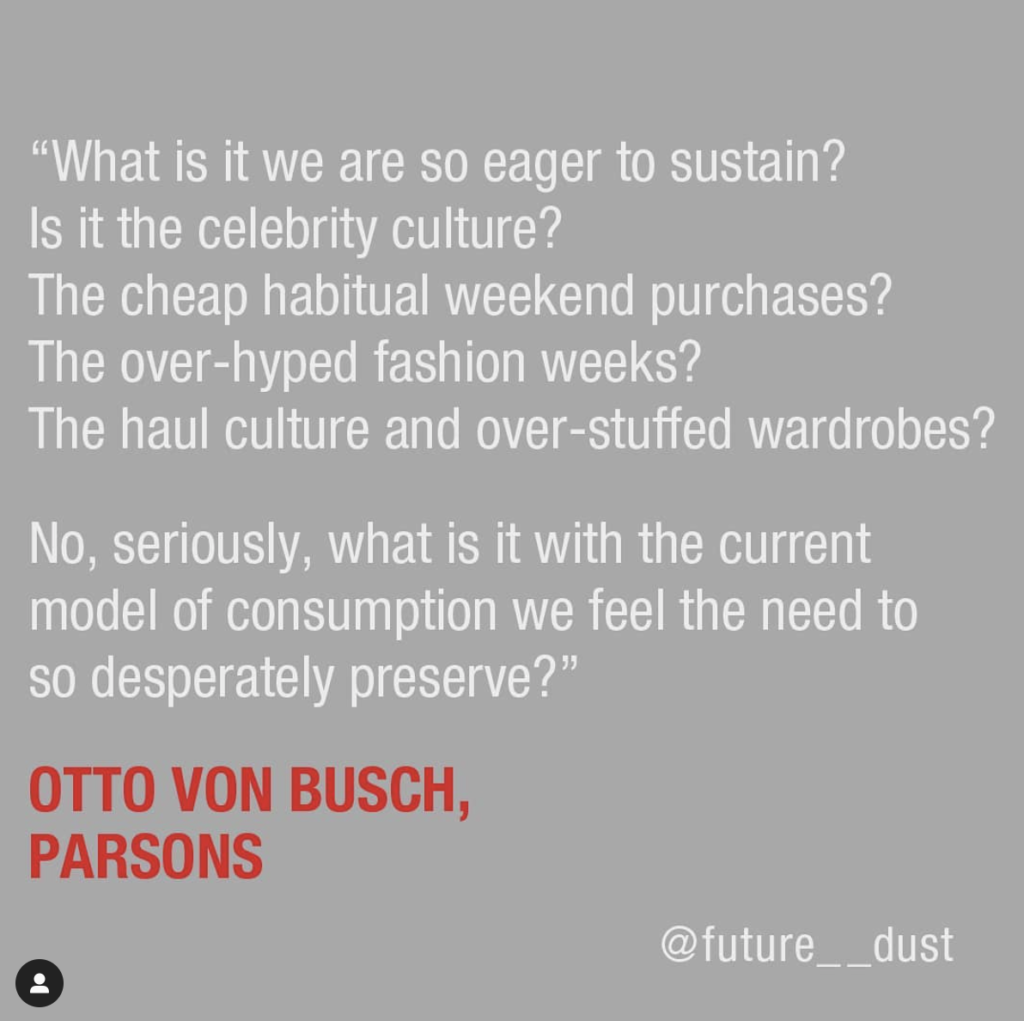
Future Dust 
Casablanca SS21
